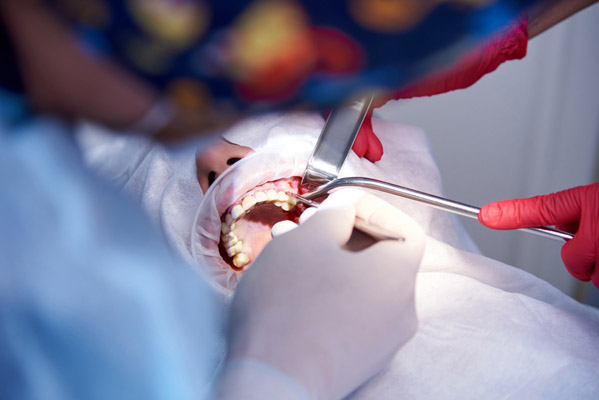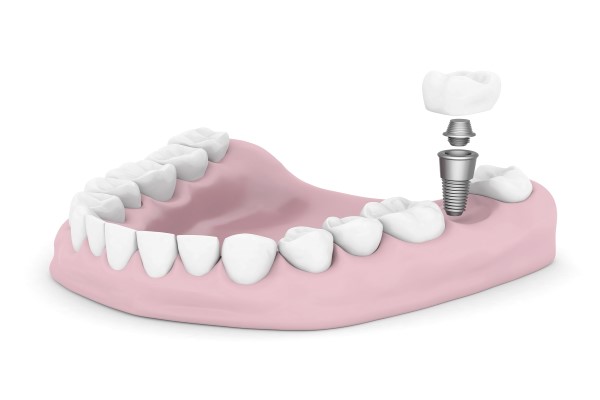Why Do I Need Scaling and Root Planing Instead of a Regular Cleaning?

Wondering what the difference is between a regular dental cleaning procedure and a scaling and root planing procedure? Keeping gum disease at bay is important for all dental patients. Periodontists are dental specialists who focus on preventing, diagnosing and treating gum disease.
About periodontists
Thinking about your upcoming scaling and root planing procedure? Periodontists are dental specialists who have additional training in order to help patients experiencing gum-related dental problems. If it is determined that a patient needs scaling and root planning, it simply means they need a deep cleaning rather than a regular cleaning. How often regular cleanings occur depends on each individual patient; regular dental cleanings can be performed every three months, every six months, every nine months or every 12 months.
When scaling and root planing is necessary
The scaling and root planing procedure is for patients who have spaces between their gums and teeth that are too deep for a regular dental cleaning to reach. According to the American Dental Association, plaque gets trapped in these spaces and cannot be removed with regular brushing; if left untreated, it could lead to bone and tooth loss. This condition requires some dental patients to undergo a scaling and root planing procedure to remove any built-up plaque below the gumline. This deep-cleaning procedure also helps remove any bacteria in the mouth, which is important to one's overall oral and general health.
When a regular dental cleaning is necessary
Regular dental cleanings are for patients who only need their teeth cleaned at or above the gumline. This type of dental cleaning procedure should be performed on a regular basis to help maintain the health of one’s gums. This routine dental procedure uses special tools to remove any plaque or tartar buildup on a patient's teeth and helps ensure that the patient's teeth are not going to be negatively affected by any plaque or tartar buildup.
How gum disease can affect one’s health
Dental patients who are diagnosed with gum disease have inflammation and a buildup of bacteria in their mouths. Bacteria and inflammation can certainly cause gum and teeth-related problems, but they can also cause other types of health problems. If left untreated, gum disease will eventually destroy the bone structures that support one's teeth, ultimately leading to tooth loss, and has the potential to cause problems for one's general health—including heart disease, diabetes, dementia and rheumatoid arthritis.
Bottom line
Scaling and root planing procedures are often necessary to improve the overall health of a patient's gums. Good gum health is essential to good mouth health, which means patients need to undergo regular dental cleanings. When a patient learns that they are in need of a deep cleaning, it simply means that they are in need of cleaning beneath their gumline. Patients who avoid professional dental cleanings will often experience dental problems, like gum disease and cavities.
Request an appointment here: https://www.torreyhillsperio.com or call Torrey Hills Periodontal Group at (858) 925-1188 for an appointment in our San Diego office.
Check out what others are saying about our dental services on Yelp: Scaling and Root Planing in San Diego, CA.
Recent Posts
An oral surgeon might recommend the sinus lift procedure if your jawbone needs to be built up so it can hold dental implants. Also known as a sinus bone graft, the treatment is used to build bone tissues in the upper jaw. Oral surgeons or periodontists typically perform the procedure. Patients need to be fully…
Many patients with missing teeth find themselves looking at implants as a solution. dental implants have become a popular tooth replacement option in recent years that offers numerous benefits for a patient's oral health. Different types of prostheses are used with implants for different severities of tooth loss.Implants are nowadays one of the most common…
A missing tooth must get a tooth replacement as soon as possible. An untreated dental gap can contribute to many dental issues. That is why a dental replacement is important. Here are the details on how a tooth replacement can improve your smile.An oral surgeon understands how tooth loss can affect a patient. A tooth…
Undergoing oral surgery can feel overwhelming, but proper post-operative care is crucial to ensure a smooth recovery. Whether you have had wisdom teeth removed, dental implants placed, or another procedure, following the right recovery steps can help minimize discomfort and prevent complications.First and foremost, the oral surgeon will provide detailed post-operative care instructions specific to…


